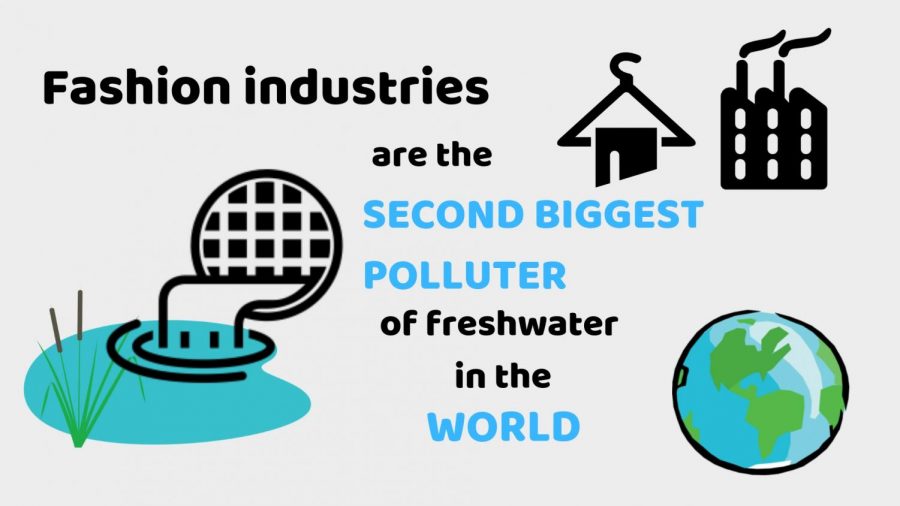Fast fashion flies past dangers
Companies produce clothes that affect world
February 2, 2019
Name brand stores exploit laborers that produce their product and contribute to the condition of the global environment decline, all in the name of fashion.
As new fashion becomes massively marketable, it leaves problems to stack as large as laundry piles. Clothes waste away in landfills for generations, and companies indirectly impose harsh conditions on people who made said clothes. Consumers need to consider the ethics in the production of clothing they buy and where it might reside after purchase.
Both name brand companies and online stores, like Forever 21, H&M, and Nike, are guilty of having products produced in sweatshops. People in second and third world countries are exploited of their efforts while they work in unfavorable conditions.
“…they [subcontractors] operate without government regulation and oversight, resulting in deteriorating work facilities where worker abuse runs rampant,” said Victoria Stafford on her article covering worker exploitation under Green America.
Companies’ constant production of textiles negatively impacts the environment. Almost 70 million gallons of oil are used annually to produce the world’s polyester fiber, the most common material in clothes, which takes hundreds of years to decompose.
Outfits of yesterday deteriorate ecosystems because to produce clothes, there is exposure to freshwater resources, emission of dangerous gasses, and cause for destructive logging.
It is time to reconsider the effects of what we wear and consider a solution.
Thrift shopping is a current trend to find vintage items for low prices. Thrifting avoids the direct support of companies powered by morally questionable work. All the clothes are secondhand, so proceeds made remain local.
Another common remedy is to donate clothes when there is no interest or need for them. This benefits the recipients of thrift shops’ charities, and support secondhand shoppers


